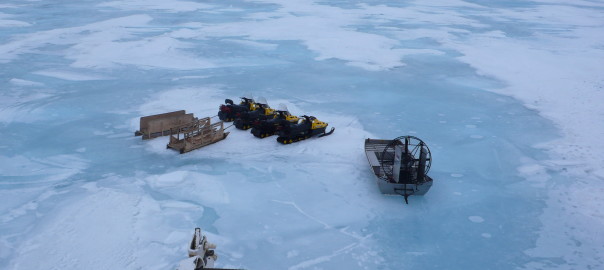Research

Strategic Environmental Assessment Opportunities and Risks for Arctic Offshore Energy Planning and Development
- Posted On: January 9th, 2013
- Category: Beaufort Sea Canadian Arctic Environmental Impact Assessment Offshore Energy Oil and Gas Development Strategic Environmental Assessment
Strategic Environmental Assessment Opportunities and Risks for Arctic Offshore Energy Planning and Development by Bram Noble, Skye Ketilson, Alec Aitken, and Greg Poelzer
Canada’s Arctic environment is rich in hydrocarbon resources. As international attention turns to the Arctic to meet global energy demands there is increased recognition of the need to advance upstream impact assessment and decision-making to plan for energy development. There have been several applications of strategic environmental assessment (SEA) over the past decade in the international offshore energy sector; however, SEA remains underdeveloped offshore in comparison to project-based environmental impact assessment and unchartered territory in Canada’s Arctic. This paper examines stakeholder perceptions of the opportunities and risks of advancing SEA for offshore energy planning and development in Canada’s Beaufort Sea. Results indicate a number of perceived opportunities for SEA, including improved regulatory efficiency, better regional baselines and planning practices, an opportunity to assess cumulative effects, more meaningful project-based assessment, and greater certainty for industry stakeholders. At the same time there are a number of perceived risks, including foregoing anticipated development opportunities, the loss of flexibility in decision making, adding another layer of bureaucracy, and the added uncertainties of a novel approach. The implications of these findings for advancing SEA in the offshore energy sector are discussed.
Click here to access the full article: http://ac.els-cdn.com/S0308597X12002527/1-s2.0-S0308597X12002527-main.pdf?_tid=174f8d72-7cf9-11e5-a24a-00000aab0f26&acdnat=1445984678_28224cdd0a281086ee33e3a07a883043

Greg M. Poelzer
Executive Chair, ICNGD and Fulbright Arctic Initiative Scholar
Dr. Greg Poelzer is a Professor in the School of Environment and Sustainability (SENS) at the University of Saskatchewan. He the Co-Lead of the Fulbright Arctic Initiative III program. He is the Co-Director of a multi-million dollar SSHRC Partnership Grant (2019-2026), Community Appropriate Sustainable Energy Security (CASES), which spans 17 Indigenous and Northern communities across Canada, Alaska, Norway, and Sweden. He also is the Lead of the Renewable Energy in Remote and Indigenous Communities Flagship Initiative at the University of Saskatchewan and Lead of the UArctic Thematic Network on Renewable Energy.
Read More



